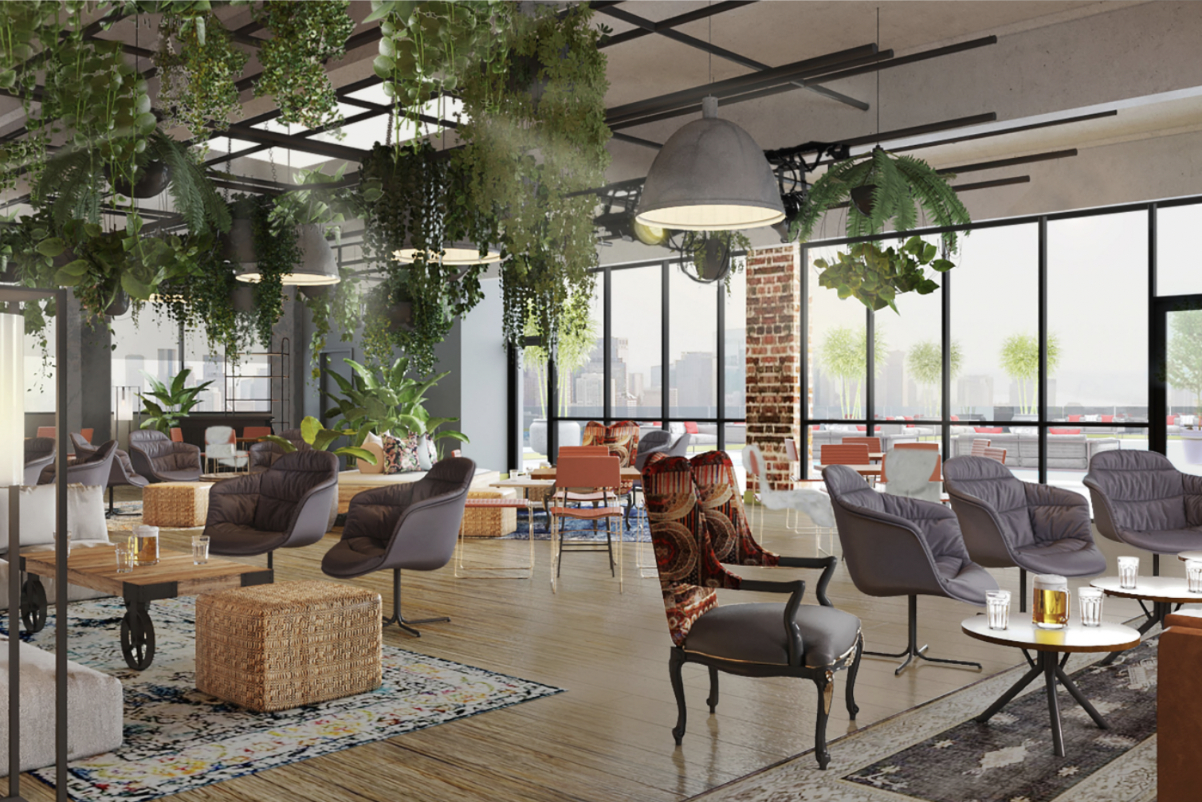Skift Take
Some hotels that temporarily closed their pools during the pandemic are permanently replacing them with more profitable event space. Yet not all guests will like the trend.
“Après ski” in New England is commonplace. But in the heart of Boston? Not so much.
Yet, this year, guests of the Revere Hotel Boston Common rooftop – and locals – will be able to sip a hot toddy or kick back in their cashmere while enjoying the twinkling lights of the Back Bay skyline.
The space used to have a small heated swimming pool. It’s been transformed into additional lounge space that allows for ultimate flexibility – and profitability – said general manager Mark Fischer.
The former pool real estate abuts the Rooftop@Revere, 16,000 square feet of outdoor events space that’s a hip hangout for six months a year. The other six, the Rooftop sits mostly dormant.
“We’re hoping to get an additional 10 to 15 percent revenue by operating the former pool space 12 months a year,” Fischer said. “The outdoor space can only be used basically mid-May through mid-October, and we wanted to get creative to add more events space.”
Pandemic Prompting
The Revere temporarily closed its pool during the pandemic. That gave staff a chance to reimagine how they might use the space better. They replaced the steamy, tucked-away nook with a new lounge for rooftop events overflow. The 2,400-square-foot area can also serve as event space on its own, accommodating up to 200 people.
The Revere is not alone in reimaging how to better use space — and an operating budget — formerly swallowed by hotel swimming pools.
In Virginia, the Residence Inn Fairfax City is filling in its outdoor in-ground pool to please more people — and animals — more of the time, said general manager Kristin Feenstra. This winter’s hotel renovation will repurpose a space that’s 40 by 20 feet and outfit it with artificial turf that’s pet-friendly and easy to clean. The re-envisioned hang will also feature fire pits, exterior sofas and tables, a grill and games like cornhole and Connect Four.
Feenstra envisions an influx of guests gathering in the space for corporate retreats, family reunions, and rehearsal dinners. More events mean more revenue.
Managing Costs
Besides the cost of insurance, a facility subcontractor, and an employee to regularly run a net through the water, this past summer was also one of the most expensive ever for chlorine consumers.
Swimming pool construction rose by about 20 percent from 2019 to 2020, without proportional increase in production. The cost to transport chemicals and a major chlorine plant fire in 2020 has meant U.S supply has been short ever since.
There are also benefits to removing a potential liability.
“It’s great from a cost-savings perspective, eliminating the need for pool maintenance, permitting, and safety maintenance,” Feenstra said.
Using Space Differently
Among them is JW Marriott Tampa Water Street, where a setback space on the sixth floor that at many other hotels would be designed as a pool is a now a lawn high above the city.
Richard Trinidad, JW Marriott’s spa director, calls the expanse the “event lawn,” and said the spot was pivotal for bouncing back from the pandemic by becoming a welcoming space for locals, not just out-of-towners. The hideaway has been used for smaller outdoor functions, and wellness activities including yoga, meditation, and Zumba.
Bringing in the greater Tampa residents helped early on in the recovery, Trinidad said. Even now, business travel is still low. Thirty-eight percent of spa-goers are local residents, and they’re likely to spend on food and beverage, for instance.
The other crucial element at a property is “space activation,” Trinidad said. Having too few people “can kill a mood.”
What could also kill a mood are splashing kids under a hot Florida sun, which is why there are still two spots to swim at his Water Street hotel: one adults-only, and another that’s more shallow for family travelers.
Trinidad said that especially in his region where every hotel seems to have a pool he would never build without one or two. But he admitted that filling in, or simply not installing one, may be a smarter long-term business move. Sourcing maintenance contractors or supplies haven’t been a challenge for him, Trinidad said, because of his contacts and the fact that he works for a major brand. But other hoteliers haven’t been so lucky.
Perhaps the real question is whether guests think that a pool is table stakes in hospitality.
For example, the average TripAdvisor rating for Boston’s Revere is 4.5 out of 5 stars. But the ratings takes a deep dip downward for any posts mentioning the lack of swimming facilities.
While the hotel website and social channels have been updated to remove images of the pool, old review images — and expectations — die hard. So the jury is still out on how widespread this trend will become.
Have a confidential tip for Skift? Get in touch
Tags: future of lodging, guest experience
Photo credit: Revere pool rendering after pool is replaced by event space. Source: Revere Hotel Boston Common.
